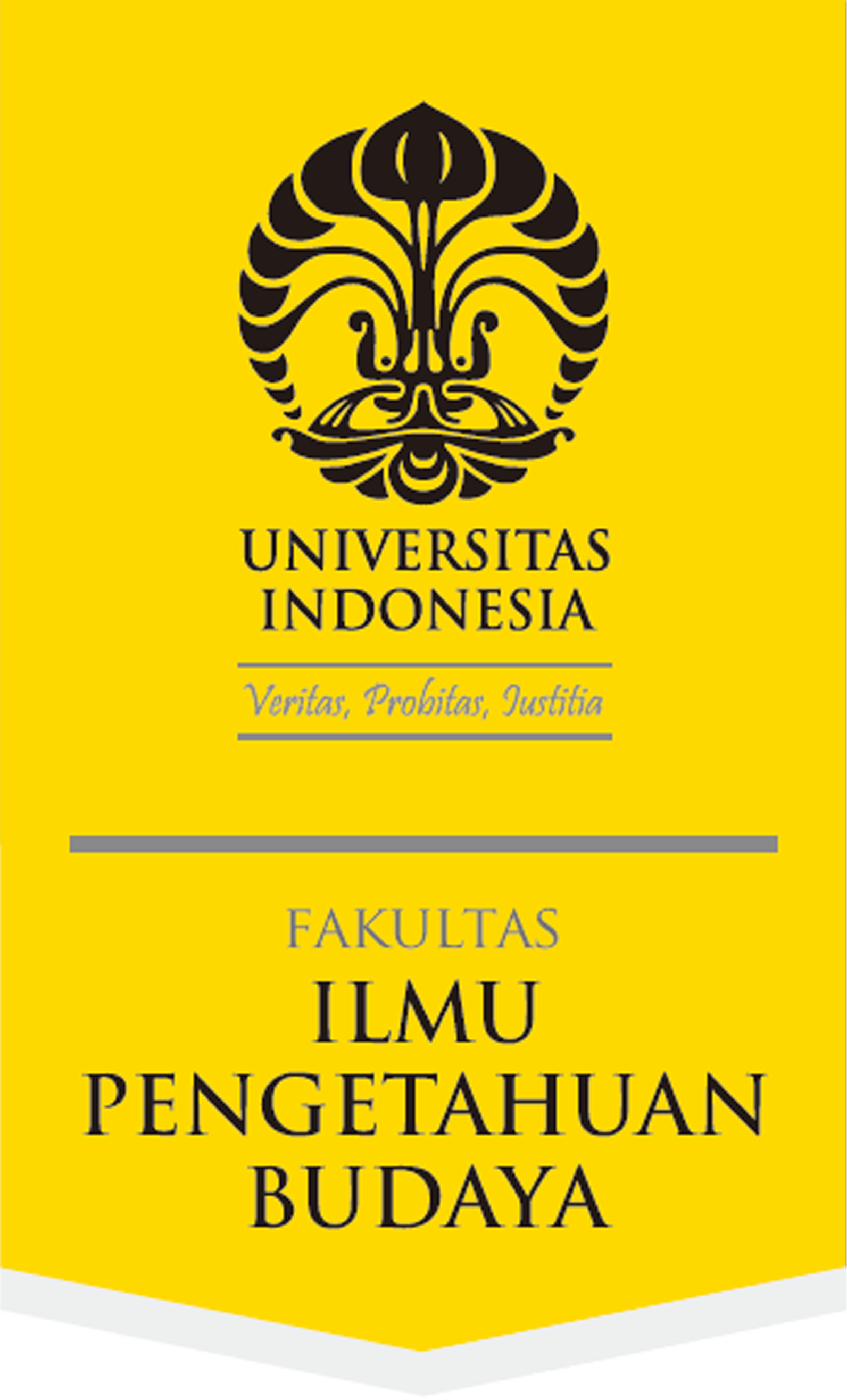Abstract
This article explores the literary journey of Ajip Rosidi, one of Indonesia’s most prolific writers, highlighting his unique position between Sundanese and Indonesian literature. Ajip authored over 300 works spanning diverse genres, making significant contributions to literature and the preservation of cultural heritage. The article examines his ambivalence or restlessness (kegelisahan) regarding the tension between regional and national identities in literature, as exemplified in his reflections and creative output. Ajip’s early life in a linguistically mixed region of West Java laid the foundation for his literary pursuits in both Sundanese and Indonesian. His works often oscillated between traditional Sundanese forms, such as guguritan, and modern Indonesian realism, reflecting his struggle to reconcile these two literary worlds. While he initially adhered to the dominant realist framework, his engagement with Sundanese folklore and poetry emphasized the richness of non-realistic and traditional narratives. Ajip’s restlessness drove his literary creativity, leading to masterpieces like the poems “Tanah Sunda” and “Lagu Jakarta”, which depict contrasting landscapes of rural and urban life, and “Janté Arkidam”, an epic narrative symbolizing resilience. His unwavering belief in regional culture motivated him to establish the Rancagé Literary Award, promoting regional languages and literatures across Indonesia. The article concludes that Ajip’s dual identity and constant negotiation between Sundanese and Indonesian literature were not limitations but sources of profound inspiration, resulting in a legacy that continues to enrich both regional and national cultural landscapes.
Ajip's early life in a linguistically mixed region of West Java laid the foundation for his literary pursuits in both Sundanese and Indonesian languages. His works often oscillated between traditional Sundanese forms, such as guguritan, and modern Indonesian realism, reflecting his struggle to reconcile these two literary worlds. While he initially adhered to the dominant realist framework, his engagement with Sundanese folklore and poetry emphasized the richness of non-realistic and traditional narratives.
Ajip's restlessness drove his literary creativity, leading to masterpieces like the poems Tanah Sunda and Lagu Jakarta, which depict contrasting landscapes of rural and urban life, and Jante Arkidam, an epic narrative symbolizing resilience. His unwavering belief in regional culture motivated him to establish the Rancagé Literary Award, promoting regional languages and literatures across Indonesia.
The article concludes that Ajip's dual identity and constant negotiation between Sundanese and Indonesian literature were not limitations but sources of profound inspiration, resulting in a legacy that continues to enrich both regional and national cultural landscapes.
References
Alwasilah, A. Chaedar, Hawe Setiawan and Rachmat Taufiq Hidayat (eds). 2008. Jejak langkah urang Sunda; 70 tahun Ajip Rosidi. Bandung: Kiblat Buku Utama.
Budiman, Arief. 2008. “Sambutan”, in: Ajip Rosidi, Hidup tanpa ijazah; Yang terekam dalam kenangan. Otobiografi Ajip Rosidi, pp. vii-ix. Jakarta: Pustaka Jaya.
Chambert-Loir, Henri. 2008. “Pengantar”, in: Ajip Rosidi, Hidup tanpa ijazah; Yang terekam dalam kenangan. Otobiografi Ajip Rosidi, pp. x-xix. Jakarta: Pustaka Jaya.
Moriyama, Mikihiro. 2012. “Regional languages and decentralisation in post-New Order Indonesia: the case of Sundanese”, in: Keith Foulcher, Mikihiro Moriyama, and Manneke Budiman (eds), Words in motion: language and discourse in post-New Order Indonesia, pp. 82-100. Singapore: NUS Press.
Moriyama, Mikihiro. 2017. “Textual production in the midst of political and social changes in Indonesia: reading of Ajip Rosidi’s Anak tanahair”, in: Jan van der Putten, Monika Arnez, Edwin P. Wieringa, and Arndt Graf (eds), Traditions redirecting contemporary Indonesian cultural productions, pp. 151-176. Newcastle: Cambridge Scholars Publishing.
Muhtadin, Teddi. 2020. Renaisans Sunda: fungsi sosial kritik sastra Ajip Rosidi. Garut: Layung.
Muhtadin, Teddi. 2023a. “Kesundaan dalam keindonesiaan; Memahami sajak Sunda tahun 1950-an”, Panggung 33(2): 209-224.
Muhtadin, Teddi. 2023b. “Menjadi Indonesia: ikonisitas Sunda-Indonesia dalam puisi ‘Tanah Sunda’ dan ‘Tanah Air’ karya Ajip Rosidi”, Sawerigading 29(1): 149-161.
Rosidi, Ajip. 1959. Tjari muatan; Empat kumpulan sajak. Djakarta: Balai Pustaka.
Rosidi, Ajip. 1985. Anak tanahair; Secercah kisah. Jakarta: PT Gramedia.
Rosidi, Ajip. 1989. Haji Hasan Mustapa jeung karya-karyana. Bandung: Penerbit Pustaka.
Rosidi, Ajip. 1995. Sastera dan budaya; Kedaerahan dalam keindonesiaan. Dunia Pustaka Jaya.
Rosidi, Ajip. 2001. Hurip Waras! Dua Panineungan. Bandung: Kiblat Buku Utama.
Rosidi, Ajip. 2004a. Jatiwangi, Sunda, Indonesia; Biantara panampian hadiah Professor Teeuw 2004. Jakarta: Dunia Pustaka Jaya.
Rosidi, Ajip. 2004b. Masa depan budaya daerah; Kasus bahasa dan sejarah Sunda. Jakarta: Pustaka Jaya.
Rosidi, Ajip. 2006. “Mengapa KIBS?”, in: Ajip Rosidi, Edi S. Ekadjati, and A. Chaedar Alwasilah (eds), Konferensi International Budaya Sunda, Vol. 1, pp. xi-xiv. Bandung: Yayasan Kebudayaan Rancage and Dunia Pustaka Jaya.
Rosidi, Ajip. 2008b. Hidup tanpa ijazah; Yang terekam dalam kenangan. Otobiografi Ajip Rosidi. Jakarta: Pustaka Jaya.
Rosidi, Ajip. 2013. Mengenal kesusasteraan Sunda. Bandung: Dunia Pustaka Jaya.
Rosidi, Ajip and Rusman Sutiasumarga (eds). 1963. Kandjutkundang, prosa djeung puisi Sunda sabada perang. Jakarta: Balai Pustaka.
Rosidi, Ajip, Edi. S. Ekadjati, D. Djiwapradja, E. Suherman, Ayatrohaedi, S. Nano, A. Soepandi, K. Sastradipoera, and Abdurachman (eds). 2000. Ensiklopedi Sunda: alam, manusia, dan budaya. Jakarta: Dunia Pustaka Jaya.
Recommended Citation
Muhtadin, Teddi and Moriyama, Mikihiro
(2025)
"Ajip Rosidi’s "kegelisahan" (restlessness) in between Sundanese and Indonesian literature,"
Wacana, Journal of the Humanities of Indonesia: Vol. 26:
No.
2, Article 7.
DOI: 10.17510/wacana.v26i2.1809
Available at:
https://scholarhub.ui.ac.id/wacana/vol26/iss2/7









